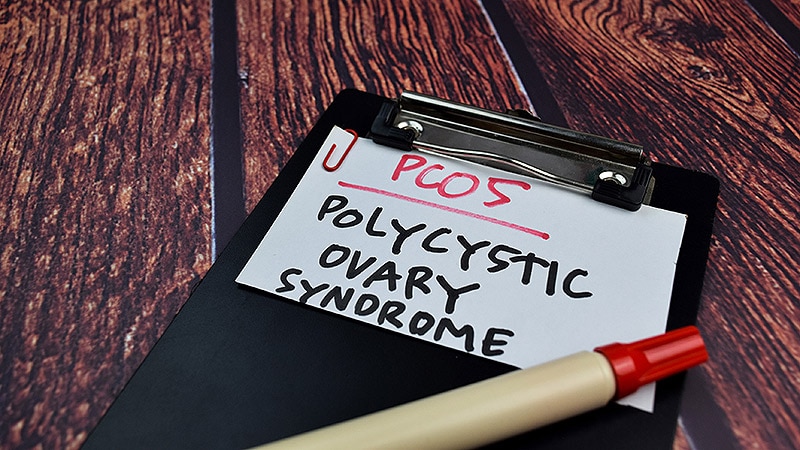Selective Essential Amino Acid Supplementation Reduces Liver Fat and Improves Metabolic Markers in Adolescent Girls with Polycystic Ovary Syndrome and Obesity
Główne pojęcia
Short-term supplementation with a selective essential amino acid formulation can reduce liver fat, plasma triglycerides, and liver inflammation markers in adolescent girls with polycystic ovary syndrome and obesity.
Streszczenie
This study evaluated the effects of a selective essential amino acid (EAA) supplement on liver health and metabolic markers in adolescent girls with polycystic ovary syndrome (PCOS) and obesity. The researchers conducted a crossover randomized controlled trial with 21 participants, who were randomly assigned to receive either the EAA supplement or a placebo for two 4-week phases.
The key findings are:
- Liver fat was lower following EAA supplementation compared to placebo (7.3% vs 8%, p=0.020).
- EAA supplementation reduced fasting plasma triglycerides by 13 mg/dL (p=0.015), VLDL-triacylglycerol by 21% (p=0.031), and serum aspartate aminotransferase (AST), a liver inflammation marker, by 8% (p=0.004).
- The peak absolute quantity of VLDL-triacylglycerol after an oral sugar tolerance test was reduced by 21% with EAA supplementation (p=0.005).
- Hepatic energy metabolism, as measured by gamma ATP, increased after EAA supplementation compared to placebo (p=0.044).
The authors suggest that this selective EAA supplement may be a low-risk and affordable option to help manage fatty liver and hypertriglyceridemia in women with PCOS.
Dostosuj podsumowanie
Przepisz z AI
Generuj cytaty
Przetłumacz źródło
Na inny język
Generuj mapę myśli
z treści źródłowej
Odwiedź źródło
www.medscape.com
Amino Acid Supplement Cuts Liver Risks in PCOS and Obesity
Statystyki
Liver fat was 7.3% with EAA supplementation compared to 8% with placebo (p=0.020).
Fasting plasma triglycerides decreased by 13 mg/dL with EAA supplementation (p=0.015).
VLDL-triacylglycerol decreased by 21% with EAA supplementation (p=0.031).
Serum AST, a liver inflammation marker, decreased by 8% with EAA supplementation (p=0.004).
The peak absolute quantity of VLDL-triacylglycerol after an oral sugar tolerance test was reduced by 21% with EAA supplementation (p=0.005).
Hepatic energy metabolism, as measured by gamma ATP, increased with EAA supplementation compared to placebo (p=0.044).
Cytaty
"This supplement may be an option to ameliorate and prevent worsening of fatty liver and hypertriglyceridemia in women with high susceptibility due to polycystic ovary syndrome."
Kluczowe wnioski z
by Zeel o www.medscape.com 04-17-2024
https://www.medscape.com/viewarticle/amino-acid-supplement-cuts-liver-risks-pcos-and-obesity-2024a10007dt
Głębsze pytania
What are the long-term effects of this selective EAA supplement on liver health and metabolic markers in adolescents with PCOS and obesity?
The study showed that short-term supplementation with the selective essential amino acid (EAA) formulation led to significant improvements in liver health and metabolic markers in adolescents with PCOS and obesity. Specifically, the EAA supplementation resulted in reduced liver fat, lower plasma triglyceride concentrations, decreased VLDL-triacylglycerol levels, and a decrease in serum AST levels. These findings suggest that the EAA supplement could potentially have long-term benefits in improving liver health and metabolic markers in this population. However, further research is needed to determine the sustained effects of EAA supplementation over an extended period.
How do the findings of this study compare to the effects of lifestyle interventions, such as diet and exercise, on liver health in this population?
The findings of this study suggest that short-term supplementation with the selective EAA formulation can lead to improvements in liver health and metabolic markers in adolescents with PCOS and obesity. When compared to lifestyle interventions like diet and exercise, the EAA supplement showed promising results in reducing liver fat, plasma triglyceride concentrations, VLDL-triacylglycerol levels, and serum AST levels. While lifestyle interventions are crucial for overall health and weight management, the study indicates that EAA supplementation may offer additional benefits in improving liver health in this specific population. Combining EAA supplementation with lifestyle modifications could potentially enhance the effectiveness of interventions targeting liver health in adolescents with PCOS and obesity.
Could this selective EAA supplement have broader applications beyond PCOS and obesity, such as in the management of non-alcoholic fatty liver disease in other patient groups?
The results of the study suggest that the selective EAA supplement could have broader applications beyond PCOS and obesity, particularly in the management of non-alcoholic fatty liver disease (NAFLD) in other patient groups. Given the positive effects of EAA supplementation on reducing liver fat, plasma triglyceride concentrations, VLDL-triacylglycerol levels, and serum AST levels in adolescents with PCOS and obesity, it is plausible that similar benefits could be observed in individuals with NAFLD. Since NAFLD is a common liver condition associated with metabolic disorders, the use of EAA supplementation may hold promise in improving liver health and metabolic markers in patients with NAFLD. Further research is warranted to explore the potential applications of EAA supplementation in diverse patient populations with liver-related conditions.
0
